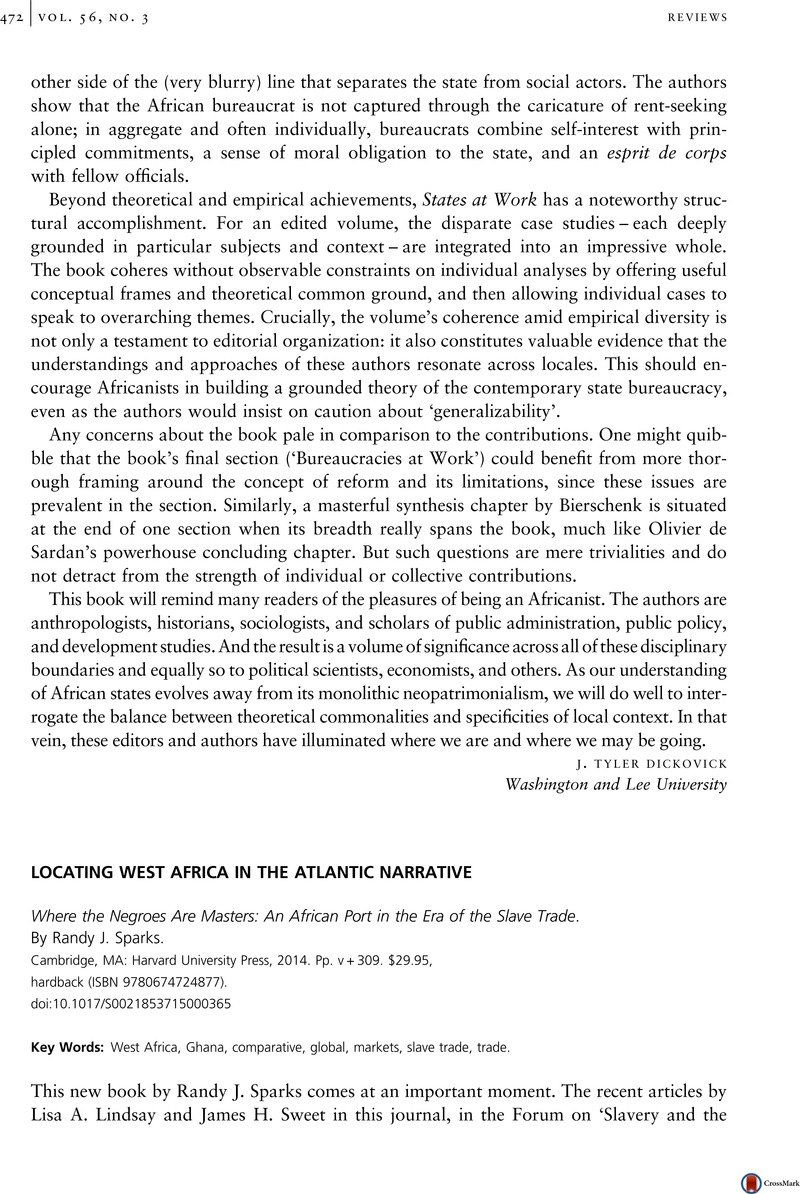No CrossRef data available.
Article contents
LOCATING WEST AFRICA IN THE ATLANTIC NARRATIVE - Where the Negroes Are Masters: An African Port in the Era of the Slave Trade. By Randy J. Sparks. Cambridge, MA: Harvard University Press, 2014. Pp. v + 309. $29.95, hardback (ISBN 9780674724877).
Published online by Cambridge University Press: 01 October 2015
Abstract

- Type
- Reviews of Books
- Information
- Copyright
- Copyright © Cambridge University Press 2015
References
1 Lindsay, Lisa A., ‘Extraversion, creolization, and dependency in the Atlantic slave trade’, The Journal of African History, 55:2 (2014), 135–45CrossRefGoogle Scholar; Sweet, James H., ‘Reimagining the African-Atlantic archive: method, concept, epistemology, ontology’, The Journal of African History, 55:2 (2014), 147–59CrossRefGoogle Scholar.
2 R. Ferreira, Cross-Cultural Exchange in the Atlantic World: Angola and Brazil During the Era of the Slave Trade (Cambridge, 2012).
3 Lovejoy, P. and Richardson, D., ‘The business of slaving: pawnship in Western Africa, c. 1600–1810’, The Journal of African History, 42:1 (2001), 67–89Google Scholar.
4 R. Shumway, The Fante and the Transatlantic Slave Trade (Rochester, NY, 2011).
5 J. LaFleur, Fusion Foodways of Africa's Gold Coast in the Atlantic Era (Leiden, 2012); J. Carney and R. Rosomoff, In the Shadow of Slavery: Africa's Botanical Legacy in the Atlantic World (Berkeley, CA, 2011).
6 J.-L. Amselle, Mestizo Logics: Anthropology of Identity in Africa and Elsewhere (Stanford, CA, 1998); P. de Moraes Farias, ‘Models of the world and categorial models: the “enslavable barbarian” as a mobile classificatory label’, in J. Willis (ed.), Slaves and slavery in Muslim Africa, vol. I (London, 1985), 27–46.


